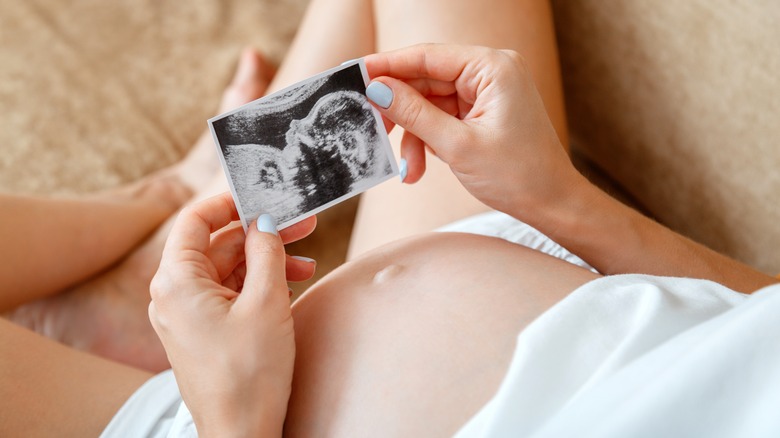What Is Mini IVF And Is It Right For You? - Exclusive
In vitro fertilization (IVF) treatments can be expensive, uncomfortable, and time-consuming. Sometimes, it might not even work. A 2020 study published in Reproductive Biomedicine Online reported that only 61% of first-round IVF treatments are successful. If first-round IVF treatments fail, couples often opt to try a second and third round. However, after three rounds of IVF treatments, patients are usually diagnosed with repeated implantation failure (RIF). RIF means the chances of clinical pregnancy fall to 25%, according to the study.
Fortunately, a new type of in vitro fertilization may help women who have trouble conceiving naturally or can't seem to get pregnant through traditional IVF. In an exclusive interview with Health Digest, Dr. John Zhang, founder, and medical director at New Hope Fertility elaborates on a different route you can take, known as mini IVF.
"Mini IVF, also known as minimal stimulation IVF, takes a more natural approach to traditional conventional IVF methods, which focuses on collecting a large number of eggs by daily injections whereas Mini IVF focuses on collecting fewer, better quality eggs by mainly [taking] daily pills," according to Zhang.
Mini IVF versus traditional IVF
Although mini IVF is a safe procedure for most women, it's best suited for those who are 39 years of age or older (an age group that generally doesn't produce more than 6 eggs overall, 40-65% per cycle), those with a history of frequently failed conventional IVF cycles, have a low ovarian reserve, and blocked or damaged fallopian tubes, according to Dr. Zhang. However, mini IVF may have success rates similar to those of conventional IVF.
Additionally, unlike the expensive traditional IVF, this may also help those who can't afford the cost of repeated IVF treatments, particularly because less medication is involved. "Depending on treatment plans, a Mini IVF cycle can range somewhere from $8K-$12K total, versus conventional IVF which averages anywhere from $20-$30K total," notes Zhang. In addition, "Mini IVF has proved to be more affordable than other IVF procedures since the cost of medication is not as high compared to conventional treatment, which involves 9-12 days of daily injection," he adds. That's a significant cost saving for the same average success rate.
Overall, he guarantees mini IVF to be less hostile to the patient. "It's kinder on the body, it's cost-effective, and it's a more comfortable solution for those struggling with other IVF treatments"
To learn more about mini IVF and Dr. John Zhang, visit the New Hope Fertility website.


